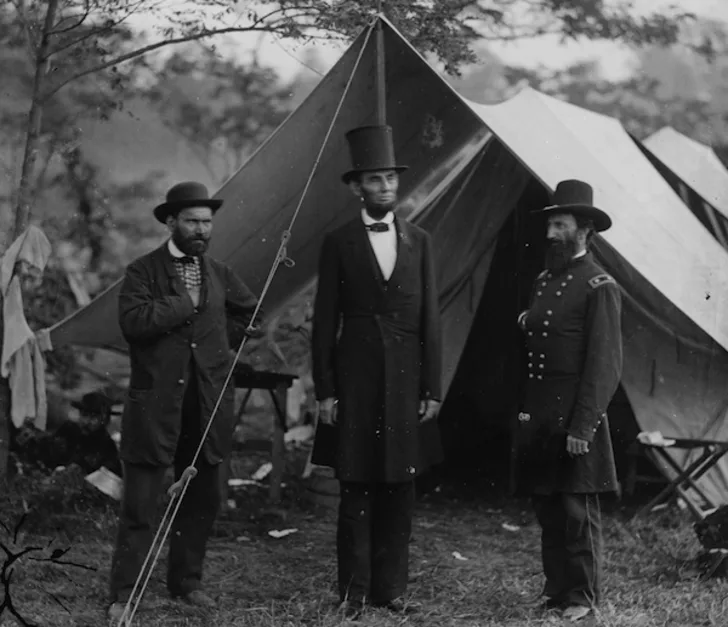
An 1861 cartoon map illustrates Union General Winfield Scott’s plan to crush the Confederacy economically. It is sometimes called the “Anaconda Plan.”
- Via Library of Congress

An 1861 cartoon map illustrates Union General Winfield Scott’s plan to crush the Confederacy economically. It is sometimes called the “Anaconda Plan.”
- Via Library of Congress
The American Civil War was arguably the foremost important event in United States history. While the American Revolution of 1776-1783 created our nation, the Civil War determined its fundamental morals and principles. As uncompromising differences grew, tensions between the North and South increased. The South's support of slavery and contrasting opinions regarding free and slave states escalated political divisions. Most Confederate states relied heavily on slave labor for the production of commercial goods, while the Union was not dependent on such labor and therefore saw no need for these inhumane efforts. In 1860, newly inaugurated president, Abraham Lincoln, announced himself to be the first republican president pledging to permanently abolish slavery from all U.S. territories. Following this announcement, seven southern states seceded from this once unified nation. They entitled themselves the Confederate States of America. Unwilling to recognize the legitimacy of their secession, the President and most Union citizens refused to support such an immoral action. On April 12, 1861, a 4-year long battle began to determine whether the United States would prevail united without the institution of slavery or if it would remain divided.

¨President Abraham Lincoln (center) and Maj. Gen. John A. McClernand (right) at the Battle of Antietam, Maryland, September-October 1862.¨
-Photo by Alexander Gardner, Library of Congress

¨Soldiers during the American Civil War. Irene Triplett, who died last month aged 90, was the last surviving civil war pensioner¨
- The Sunday Times
“Some people tried to hurt us to protect themselves, their family and communities... This was one of the consequences of civil war. People stopped trusting each other, and every stranger became an enemy. Even people who knew you become extremely careful about how they related or spoke to you.”
- Ishmael Beah, A Long Way Gone: Memoirs of a Boy Soldier
“I am often asked “Why do Southerners still care about the Civil War?” Because it is unique in the American experience. Defeat was total, surrender unconditional and the land still occupied.”
- Tim Heaton
“The will of God prevails. In great contests each party claims to act in accordance with the will of God. Both *may* be, and one *must* be, wrong. God cannot be *for* and *against* the same thing at the same time. In the present civil war it is quite possible that God's purpose is something different from the purpose of either party - and yet the human instrumentalities, working just as they do, are of the best adaptation to affect His purpose. I am almost ready to say that this is probably true - that God wills this contest, and wills that it shall not end yet. By His mere great power, on the minds of the now contestants, He could have either *saved* or *destroyed* the Union without human contest. Yet the contest began, And, having begun He could give the final victory to either side any day. Yet the contest proceeds.”
- Abraham Lincoln, ¨Meditation Of The Divine¨, September 2, 1862